Brian Jones: The Forgotten Stone
The Rolling Stones e Brian Jones: la “pietra” dimenticata.
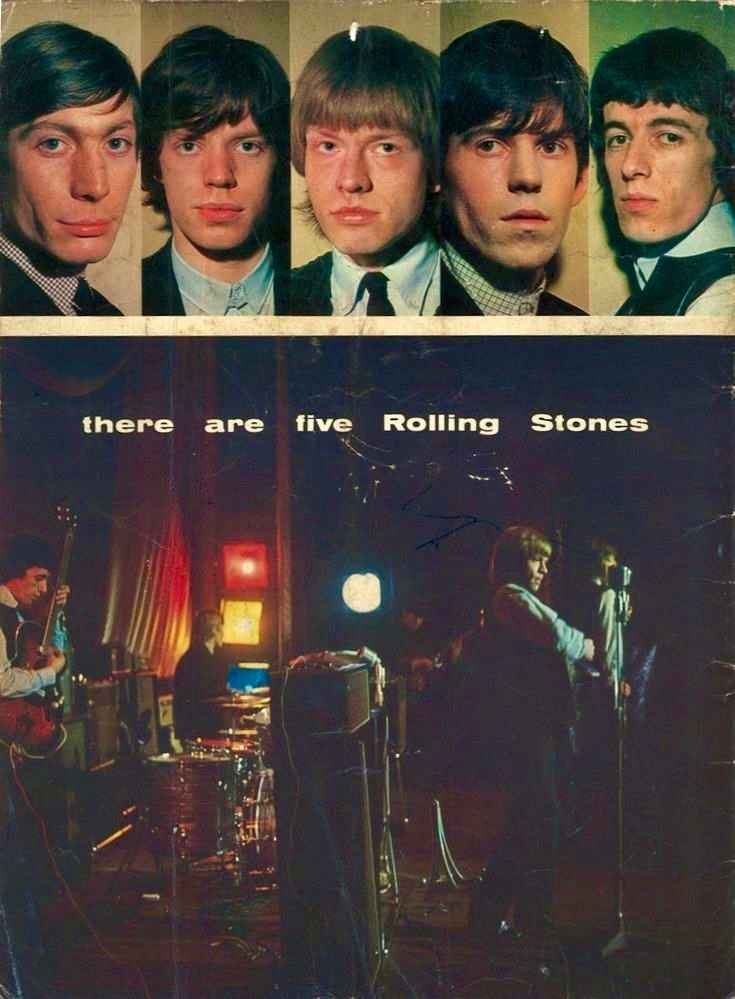
The Rolling Stones sono ancora in giro e da qualcosa come sessant’anni fanno rock. Mick, Keith e Ronnie sono gli ultimi tre rimasti ma i Rolling Stones una volta erano grandiosi in cinque. La perdita di Charlie Watts, il loro batterista di sempre avvenuta nel 2021 ha spezzato il cuore a molti. Bill Wyman, il bassista, ha lasciato il gruppo negli anni Novanta e ormai è un ricordo lontano. E poi c’è Brian Jones. I Rolling Stones erano la creatura di Brian. Lui era l’uomo che fondò il gruppo, gli diede il nome, selezionò i membri, procurò le esibizioni e in generale condusse la formazione.
Brian Jones: una star degli anni ’60
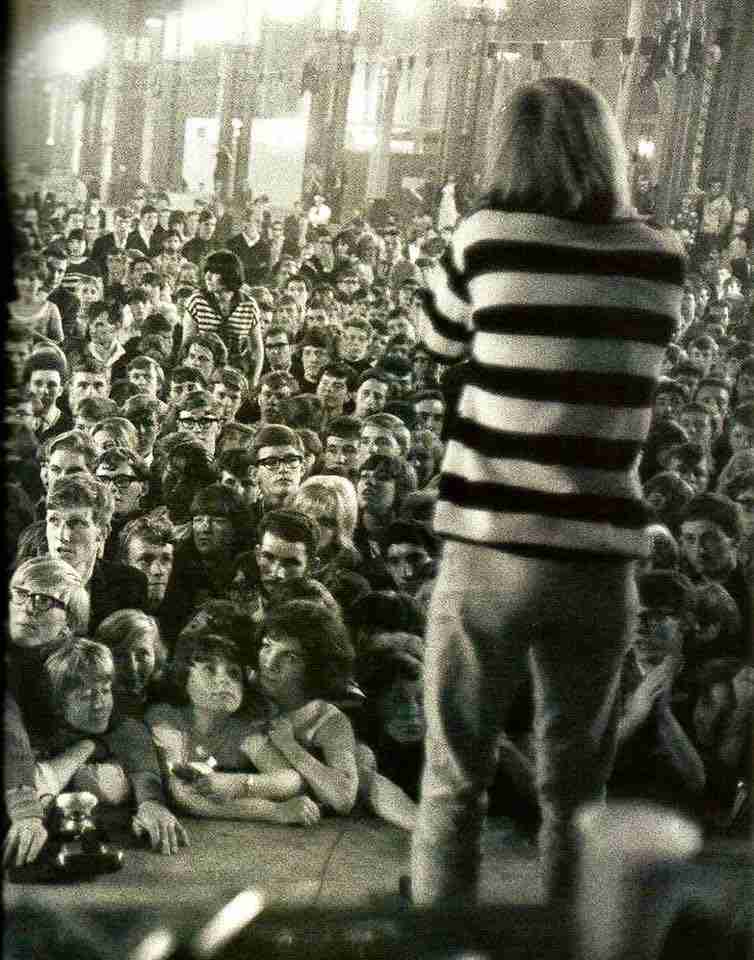
Brian oggigiorno è per lo più dimenticato dal pubblico in generale ma nella metà degli anni sessanta fu uno dei più famosi personaggi al mondo. Attualmente è ricordato soltanto dai fans più accaniti degli Stones.
Giocò un ruolo fondamentale nei primi anni degli Stones. Agli inizi non c’era una band, c’era solo Brian. Lui decise che genere di musica la sua nuova band avrebbe suonato e quella musica sarebbe stata il blues. Brian si era innamorato del blues e aveva imparato a suonarlo. Alla fine divenne uno dei primi e dei migliori chitarristi di slide blues in Inghilterra. La sua speranza era quella di spargere il messaggio del blues attraverso il suo nuovo gruppo che avrebbe chiamato The Rolling Stones. Questi sono i fatti e questi fatti sono stati largamente cancellati nella storia più visitata degli Stones.
Senza Brian Jones non sarebbero esistiti i Rolling Stones
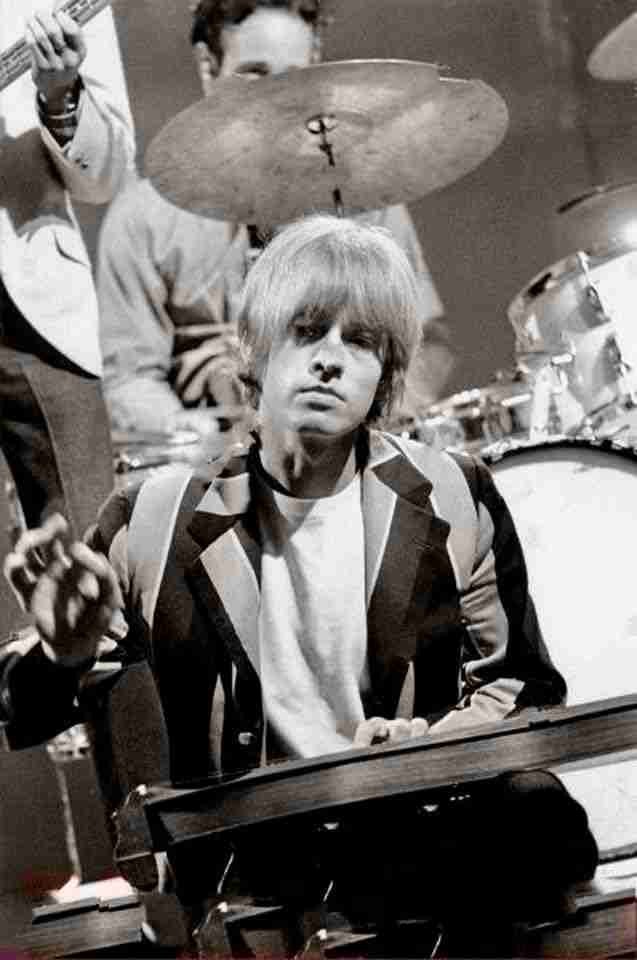
Ma il punto è che senza Brian Jones non ci sarebbero stati i Rolling Stones. Tutto qui.
Talentuosi come sono Mick e Keith molto probabilmente avrebbero comunque avuto lo stesso successo con un’altra band e senza Brian e gli Stones, ma non come è stato con loro. Questo perché, come abbiamo detto, venne da Brian l’ispirazione di chiamare così la band da un brano di Muddy Waters. Di Brian anche l’idea di riunire un insieme di musicisti selezionati per farli diventare la migliore blues band del Regno Unito. E se Brian non avesse pubblicato quel certo annuncio i Rolling Stones non sarebbero mai esistiti. Forse qualche altra band avrebbe potuto prendersi quel nome ma di certo nessuna avrebbe mai potuto far scaturire quell’entusiasmo che il line up classico degli Stones scatenò.
Brian Jones e la passione per il blues
Nella primavera del 1962 Brian era a Londra e suonava la slide guitar con la blues band Blues Incorporated. Il 2 di Maggio Brian pubblicò un annuncio per cercare dei musicisti per formare un gruppo sulla rivista Jazz Weekly. Il tastierista Ian Stewart fu tra i primi a rispondere all’annuncio e ad essere arruolato. Fu seguito dal cantante Mick Jagger, dal chitarrista Keith Richards e dal bassista Dick Taylor. Il batterista Mick Avory futuro membro dei Kinks, sarebbe stato il prossimo ad unirsi, ma non ci rimase molto perché venne rimpiazzato da Tony Chapman. Il primo line up dei Rolling Stones includeva Brian Jones alla chitarra, Mick Jagger alle vocals, Keith Richards alla chitarra, Ian Stewart piano. Dick Taylor, che venne sostituito da Bill Wyman il 7 dicembre del 1962 era al basso. Il pezzo finale del puzzle che completò il line up classico dei Rolling Stones fu Charlie Watts che rimpiazzò Chapman alla batteria.
Il primo concerto dei Rolling Stones
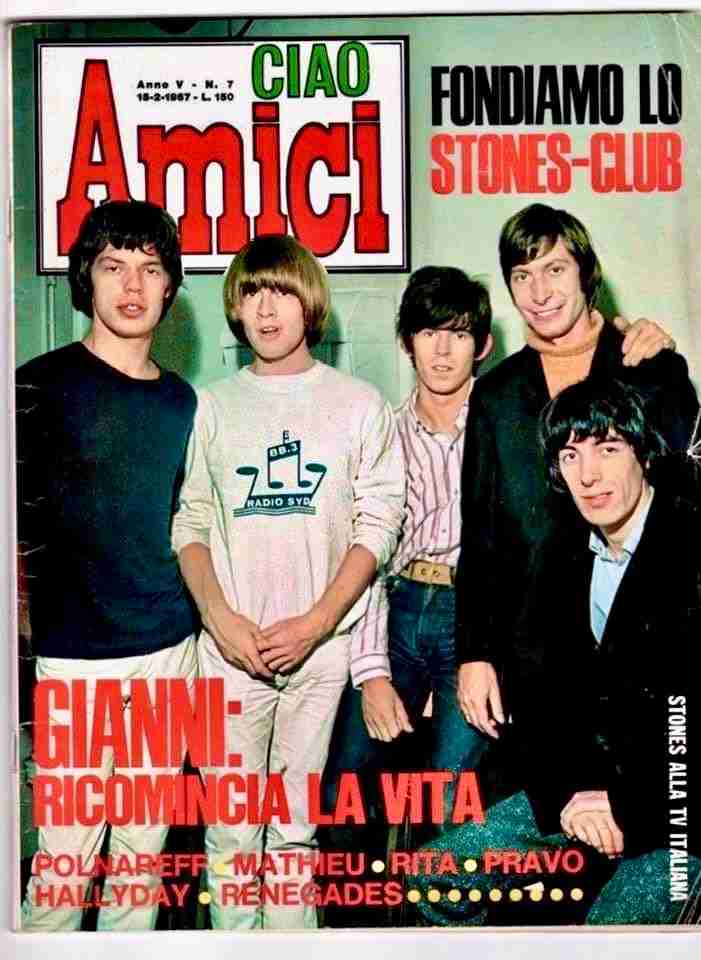
Il loro primo concerto si tenne un sabato il 12 gennaio 1963 all’Ealing Jazz Club a Londra.
Fino a Maggio del 1963 Brian fu il manager non ufficiale degli Stones ma venne sollevato da quelle responsabilità quando Andrew Loog Oldham divenne il manager ufficiale del gruppo. Poco dopo l’arrivo di Oldham Ian Stewart venne licenziato perché il suo aspetto fisico non coincideva con l’immagine che il manager si era fatto dei Rolling Stones. In più Oldham riteneva che sei membri in un gruppo fossero troppi. Dato che Ian era molto apprezzato ed era anche un eccellente pianista gli fu offerto il ruolo di road manager. Ian o Stu, come veniva chiamato, rimase con gli Stones fino allo sfortunato giorno in cui morì il 12 dicembre 1985. Stu fu anche il tastierista in tour dei Rolling Stones suonando però al di fuori del palcoscenico.
Un multistrumentista straordinario
Agli inizi gli altri del gruppo guardavano a Brian come al loro mentore, questo quando Brian, Keith e Mick vivevano insieme al 102 di Edith Grove, Chelsea dal Settembre 1962 al Settembre 1963. Si esercitavano giorno e notte. Durante quelle sessions era chiaro quanto Brian fosse superiore come musicista rispetto agli altri due. Insegnò a Mick le basi per suonare l’armonica e a Keith quelle per suonare la chitarra blues. Le loro jamming senza fine con l’interplay delle due chitarre di Brian e Keith si sviluppò e si evolse in una tecnica che diventò il loro marchio di fabbrica e che venne utilizzato per molte delle loro prime hits.
Il membro più famoso dei Rolling Stones
Agli esordi Brian era di gran lunga il membro più famoso dei Rolling Stones ed era considerato il leader. Fino al giorno in cui l’asse del potere nei Rolling Stones si spostò. Fu quando Andrew Loog Oldham divenne il manager della band. Andrew aveva una visione. Voleva replicare lo spettacolare successo dei Beatles ma c’era una differenza. The Rolling Stones sarebbero stati gli anti Beatles. Una band che i ragazzini avrebbero amato ma che i loro genitori avrebbero odiato. C’era però un grosso problema da risolvere. L’enorme successo dei Beatles era dovuto a brani originali mentre gli Stones non componevano le loro canzoni.
Il duo Jagger-Richards
Oldham risolse la questione rinchiudendo letteralmente Jagger e Richards in una stanza fino a che non avessero scritto un pezzo. Il titolo di quella canzone era Tell me you’re coming back to me. Questo fu il primo passo dell’evoluzione di Mick e Keith in un prolifico duo di compositori che avrebbe trascorso la maggior parte degli anni sessanta a macinare hits.
La delusione di Brian
In queste circostanze Brian deve essersi sentito come chi a creato qualcosa ma subito dopo ne è stato spinto ai margini da coloro che lui stesso aveva portato a bordo in questa sua creazione. Per lui deve essere stata una tremenda delusione! Detto ciò realisticamente, se questa transizione musicale non fosse avvenuta ci sarebbero stati comunque i Rolling Stones ma sarebbero rimasti una cover band o avrebbero dovuto cantare e suonare canzoni scritte da altri. Non avrebbero mai raggiunto i picchi di popolarità e di successo che hanno ottenuto senza le composizioni di Mick e Keith. Fu l’ebbrezza di quel successo che convinse Brian a non lasciare la band sebbene fosse disincantato riguardo la direzione musicale che gli Stones avevano preso. Brian mise in un angolo tutte le sue perplessità e andò avanti contribuendo con delle performance innovative a compimento della musica di Jagger e Richards.
La nuova musica degli Stones
Così come gli Stones cambiarono musicalmente anche lui lo fece. Come cambiarono le dinamiche della band cambiò Brian, il quale come un camaleonte velocemente si trasformò nel ruolo di multistrumentista. Brian era un musicista dotato che aveva la capacità di suonare quasi qualsiasi strumento che prendeva in mano e di farlo molto velocemente. Si dice che imparò a suonare l’armonica in una notte. Per non parlare di quando George Harrison lo introdusse al sitar. Familiarizzò immediatamente con quello strumento e in circa mezz’ora imparò a suonarlo. Letteralmente spesso prendeva uno strumento in studio e lo adattava al progetto musicale che aveva per le mani.
Un tocco speciale alle hits della band
I contributi musicali di Brian aggiunsero un tocco speciale alle più grandi hits dei Rolling Stones. Lui trasformava una qualunque canzone pop in qualcosa di molto più interessante, aggiungeva alcune idee musicali di grande immaginazione alla musica della band. Per arricchire le canzoni firmate Jagger-Richards usò una serie di strumenti esotici e non. Tra questi la chitarra, il sitar, marimba, tromba, sassofono, piano, oboe, mellotron, dulcimer, tamburi, recorder, autoharp, armonica…
Il suo enorme contributo musicale
La sua slide guitar fu una bella aggiunta a I want to be your man del 1963. Fu la prima canzone pop ad includere un assolo di slide guitar. Alcuni dei suoi migliori lavori includono il mellotron come in 2000 Light years from home, Street fightman man e We love you. L’Oboe in Dandelion, il sitar in Pain it black, la chitarra 12 strings in I’m free. Quindi il recorder in Ruby Tuesday. la Marimba in Under my thumb, lo xilofono in Yesterday’s Papers, gli ottoni in She is a rainbow. E chi può dimenticare il suo accompagnamento di french accordion in Back Street Girl e il suo magnifico lavoro di slide guitar in No Expectations?
Il contributo musicale di Brian ai Rolling Stones fu a dir poco significativo.
Andrew Loog Oldham su Brian Jones
Come disse Andrew Loog Oldham riguardo l’album degli Stones del 1966 Aftermath. “Il contributo di Brian può essere ascoltato su ogni track di queste registrazioni alla RCA. Ciò che lui non sapeva suonare lo ha imparato. Puoi ascoltare il suo tocco dappertutto su pezzi come Lady Jane o Paint it black. In alcune circostanze è stato più di un effetto decorativo. Qualche volta Brian ha messo insieme l’intero disco”. Anche Bill Wyman lodò il tocco strumentale dei lavori di Brian alla slide guitar in Ruby Tuesday.
Aftermath
I contributi di Brian all’album Aftermath sono considerati uno dei suoi più grandi raggiungimenti con la band. Le sue impronte sono dappertutto in quel disco. Come in Their Satanic Majesties Request, un album nel quale lui fu molto coinvolto. I suoi sitar, dulcimer, mellotron e flauti sono ovunque nel disco. L’ultimo album dei Rolling Stones al quale Brian ha partecipato è stato Beggars Banquet. Li il suo ultimo contributo è stata una splendente slide guitar in No Expectation.
L’ultima apparizione con la band
Al tempo delle registrazioni di Beggars Banquet i Rolling Stones erano diventati una band molto diversa da quella che Brian aveva previsto. Lui era arrivato ad un punto di rottura sia musicalmente che dal punto di vista personale. La musica degli Stones era cambiata drasticamente dai giorni in cui la chitarra di Brian era il sound centrale del gruppo. Quel periodo era passato e lui non era d’accordo con la direzione musicale degli Stones dell’epoca. Riteneva che gli Stones fossero diventati troppo commerciali e pop.
The Rolling Stones Rock and Roll Circus uno special tv, fu l’ultima apparizione live di Brian e avvenne l’11 dicembre 1968.
Brian Jones si separa dai Rolling Stones
L’8 giugno 1969 fu il giorno in cui Brian fu informato da Keith e Mick che non sarebbe stato più parte della band. Charlie fece da “spartiacque” a casa di Brian a Cotchford Farm. Mick e Keith informarono Brian che la loro idea era che la band potesse andare avanti anche senza di lui. Quella notte fu annunciata la rottura da Brian e Mick.
L’annuncio ufficiale e l’eredità musicale di Brian Jones

Brian disse: “Non mi trovo più d’accordo con gli altri in merito ai dischi che stiamo facendo. Musicalmente non comunichiamo più. La musica degli Stones non è più di mio gusto. Il lavoro di Mick e Keith è progredito in modo tangente, almeno dal mio punto di vista. Il mio desiderio è di suonare il mio personale stile musicale più che quello di altri. Non importa quanto io apprezzi i loro concetti musicali. Abbiamo avuto un incontro amichevole e ci siamo messi d’accordo di terminare la nostra collaborazione, temporaneamente o permanentemente. Questa è stata l’unica risposta possibile a questa situazione. L’unica soluzione era quella di prendere strada separate ma rimarremo amici. Amo quei ragazzi.”.
Meno di un mese dopo Brian lasciò questo mondo ma lasciò anche un’eredità duratura e la sua presenza si avverte ancora fino ad oggi. Brian sarà per sempre giovane.
Brian Jones: The Forgotten Stone
The Rolling Stones are still out there and still rocking some sixty years on. Mick, Keith and Ronnie are the last three standing. But the Rolling Stones once were five strong. The loss of their longtime drummer Charlie Watts a few years ago was a heartbreaker. Bill Wyman bass player extraordinaire left in the 90’s and is a distant memory. And then there’s Brian Jones. The Rolling Stones were Brian’s brainchild. He was the man who founded The Rolling Stones, named them, selected the members, procured their gigs and in general led the way.
Brian Jones: a rockstar in the Sixties
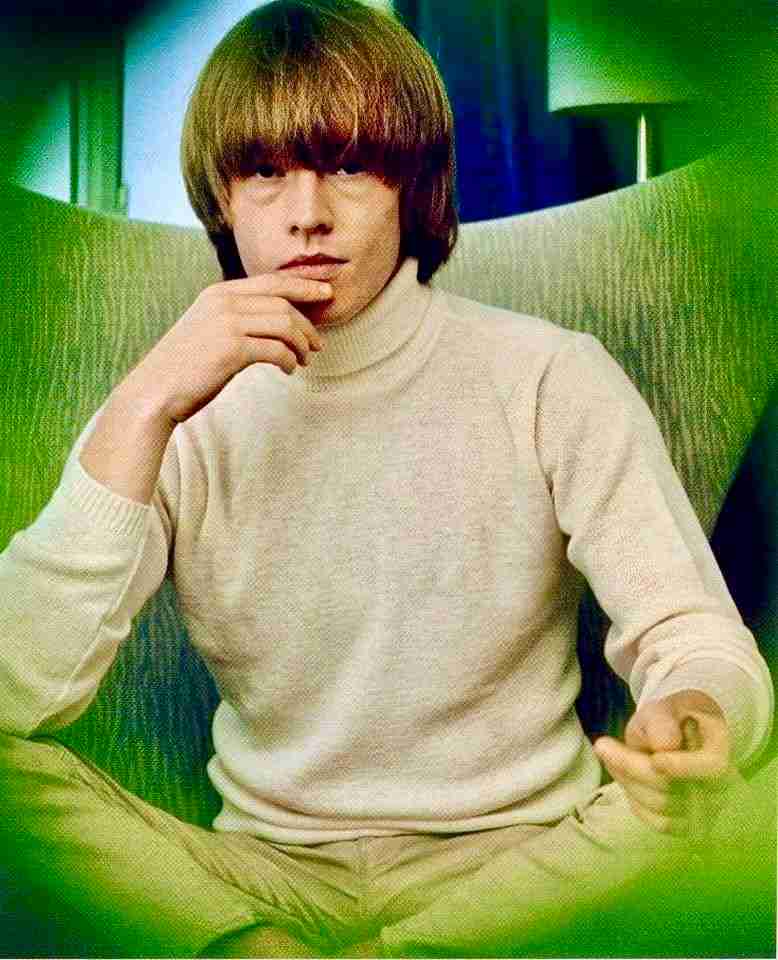
Brian is mostly forgotten today by the general public. But back in the mid to late 60’s he was one of the most widely recognizable people in the world. Today he is mostly known only by diehard Stones fans. Brian played a crucial role in the early years of the Stones. In the beginning there was no band there was only Brian. He decided what kind of music his new band would play and that music would be the blues. Brian had fallen in love with the Blues and had learned to play them. And eventually became one of the first and best blues slide guitarist in England. He hoped to spread the message of the Blues through his new band which he would call The Rolling Stones. Those are the facts and those facts have largely been erased from the revised history of The Rolling Stones.
Without Brian there would have been no Rolling Stones
The fact is that without Brian Jones there would have been no Rolling Stones. It’s that simple. As talented as they are, Mick and Keith most likely would have found success possibly equal to the Stones with another band and without Brian and the Stones. But not as Rolling Stones. Because without Brian’s inspiration to name the band after a Muddy Waters song and calling the band The Rolling Stones, while also gathering a group of musicians selected by himself and turn them into the premier blues band in England, and if Brian hadn’t placed that ad, the Rolling Stones would never have existed. Another band might of picked up the name. But none would or could ever match the excitement the classic Stones lineup stirred up.
Brian Jones and the passion for blues
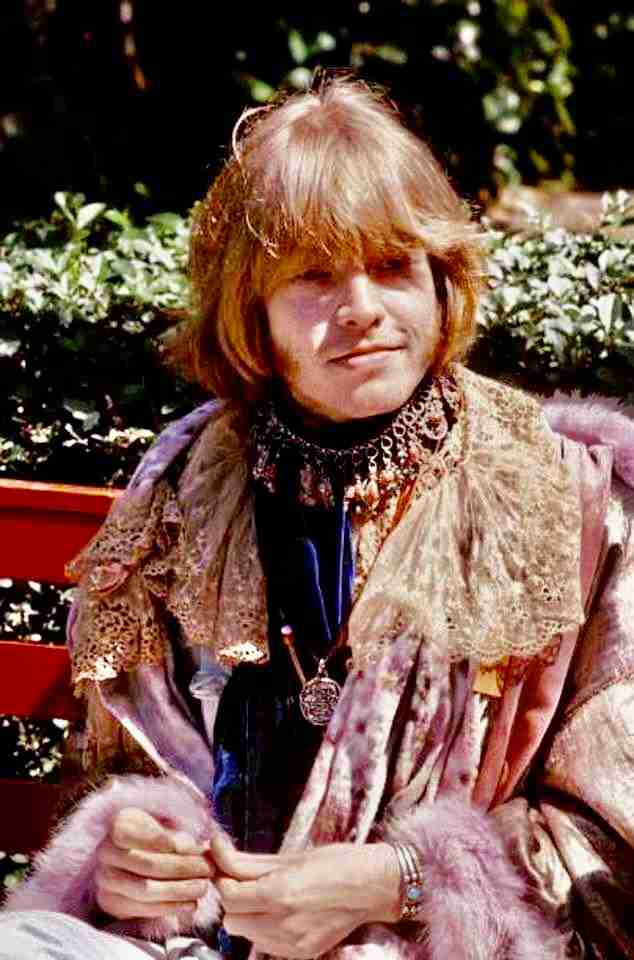
In the spring of 1962. Brian was in London playing slide guitar with Blues band Blues Incorporated. On 2nd of May, Brian placed an ad seeking musicians for a band in Jazz Weekly. Keyboardist Ian Stewart was among the first to respond to the ad and be hired. He was followed by vocalist Mick Jagger, guitarist Keith Richards and bass player Mick Taylor. Drummer Mick Avory future Kinks drummer would be next to join but he wouldn’t be there long before being replaced by Tony Chapman. This first lineup of The Rolling Stones would include Brian Jones on guitar, Mick Jagger vocals, Keith Richards guitar, Ian Stewart piano, Dick Taylor who would be replaced by Bill Wyman on, 7 December 1962, was on bass. And the final piece of the jigsaw puzzle that would complete the classic Rolling Stones lineup would be Charlie Watts replacing Chapman on drums.
The first Rolling Stones gig
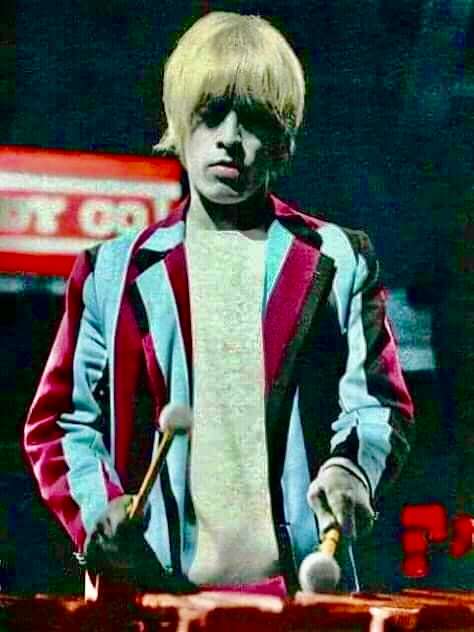
Their first gig would be on Saturday, 12 January 1963, at the Ealing Jazz Club in London. Up until May of 1963, Brian had acted as the Stones unofficial manager but was relieved of those responsibilities when Andrew Loog Oldham became their manager. Shortly after Oldham was hired, Ian Stewart was asked to leave the group because his physical appearance didn’t fit the image that Oldham pictured a Rolling Stone should look like. In addition Oldham also felt that six members in a band was one to many. Being Ian was so well liked and also an excellent piano player he was offered the position of Road Manager. Ian or Stu as he was known would remain with the Stones till the unfortunate day he passed away on December 12, 1985. Stu also assisted as touring keyboardist, playing along with the Stones but playing off stage.
An exceptional multi-instrumentalist
In the beginning the others looked up to Brian almost as a mentor. When Brian, Keith and Mick we’re living together at 102 Edith Grove, Chelsea from September 1962 till September 1963. They would practiced endlessly. And during those sessions Brian who was a superior musician to the other two. Taught Mick the basics of playing harmonica and Keith the basics of blues guitar. Their endless jamming with their guitars intertwining developed evolved into a technique that the Stones would trademark and use on many of their earlier hits.
The most famous Rolling Stones member
In the early days Brian was far and away the most popular Rolling Stone and the assumed leader. Till one day when the axis of power within the Rolling Stones shifted. That day was the day, that Andrew Loog Oldham was hired to be the Rolling Stones manager. Andrew had a vision. It was to replicate the spectacular success of the Beatles. But there was a twist. The Rolling Stones would be the anti-Beatles. A band that the kids would love but their parents would hate. There was only one problem though. The Beatles huge success was due to their original songs. While Stones did not write their own songs.
Jagger-Richards duo
Oldham went about this problem by literally locking Jagger and Richards in a room until they had written a song. The title of that song was, “Tell Me You’re Coming Back To Me”. This would be the first step in Mick and Keith’s evolution into a prolific songwriting duo who would spend most of the 1960’s churning out hit records.
The Brian Jones letdown
With this occurrence Brian most likely was feeling like anyone who had created something then soon afterwards is slowly edged out by those he bought onboard his creation. It had to be a tremendous let down to Brian. But all things aside, realistically if this musical transition didn’t occur there most likely would still be a Rolling Stones but by remaining a cover band or depending on others outside the band to write songs for them. They would have never reached heights of popularity and the level of musical success that they had without Mick and Keith’s songs. And it was the intoxication of that success which would keep Brian from leaving the band although he was disenchanted with the direction the Stones music had taken. To his credit Brian put this aside and would go on to contribute some groundbreaking musical performances to complement Jagger and Richards music.
The new Rolling Stones music
As the Stones changed musically so did Brian. And as the dynamics of the band changed so did Brian. Who like a chameleon quickly transformed himself into the role of multi- instrumentalist. Brian was a gifted musician. Who had the capacity to learn to play almost any instrument he picked up quickly. He supposedly mastered the harmonica overnight. And when George Harrison introduced Brian to the sitar. He familiarized himself and was playing it within a half hour. He would often literally pick up a stray instrument in the studio and adapt it to the musical project currently at hand.
A special touch to the band’s hits
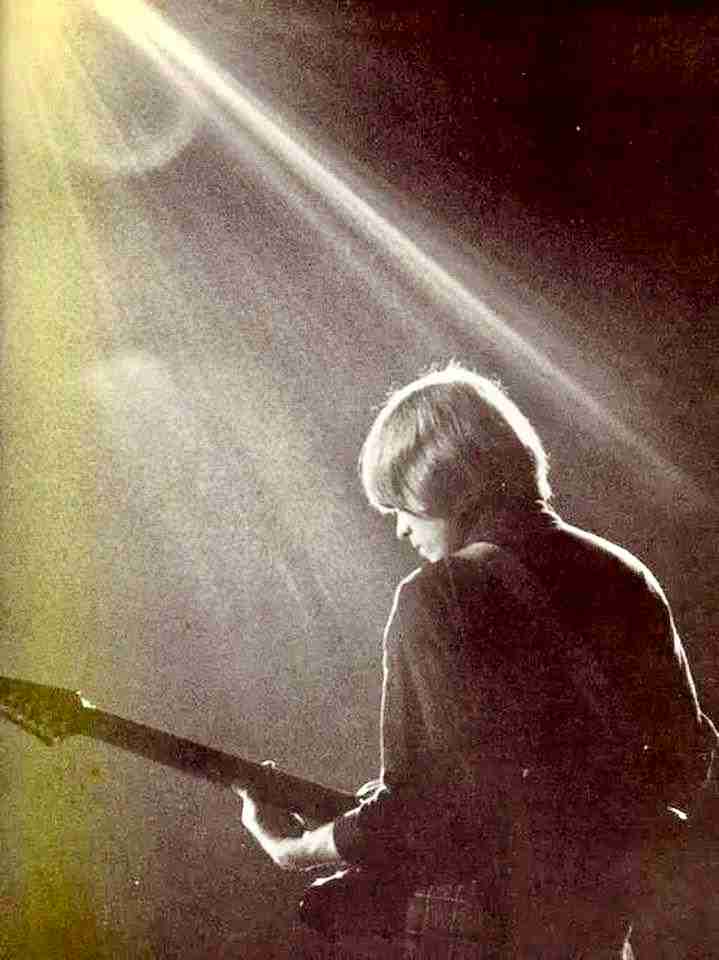
Brian’s musical contributions added a special touch to many of the Stones biggest hits. He made an average pop song into something much more interesting. Adding some very imaginative musical ideas to their music. Brian used a slew of exotic and not so exotic musical instruments to compliment Jagger/ Richards songs. Among them were the guitar, sitar, marimba, trumpet, saxophone, piano, oboe, mellotron, dulcimer, tamboura,recorder, autoharp, harmonica among others.
His huge musical contribution
His slide guitar was a nice addition to 1963’s, “I Want To Be be Your Man”. It was the first pop song to include a slide guitar solo. Brian stepped up his game instrumentality by becoming a multi instrumentalist. Some of his best work included the mellotron on ‘2,000 Light Years From Home, Street- Fighting Man, and We Love You. The oboe on Dandelion, sitar on Paint It Black, 12 string guitar on I’m Free, recorder on Ruby Tuesday, marimba on Under My Thumb, xylophone on Yesterday’s Papers, brass instruments on She’s A Rainbow, and who could forget his French accordion accompaniment on “Back Street Girl”, and his beautiful slide guitar work on “No Expectations”. Brian’s musical contributions to the Rolling Stones were significant to say the least.
Andrew Loog Oldham on Brian Jones
To quote Andrew Loog Oldham on Brian’s contribution to the Stones 1966 album, Aftermath. “Brian’s contributions can be heard on every track on those recordings at RCA. What the guy didn’t play he went out and learned. You can hear his color all over songs like Lady Jane or Paint It Black. In some instances it was more then a decorative affect. Sometimes Brian pulled the whole record together”. Bill Wyman praised Brian’s instrumental touch from his slide guitar work to his recorder on Ruby Tuesday.
Aftermath
Brian’s contributions to the Stones Aftermath album is considered one of Brian’s greatest achievements with the band. His fingerprints were all over that album. As well as with “Their Satanic Majesties Request” album. Which Brian was very involved with. His sitar, dulcimer, mellotron and flutes are all over the album. The last Rolling Stones album Brian would participate on would be “Beggars Banquet”. Where his last contribution to the Stones was an alluring slide guitar on “No Expectations.”
The last time with the band
At the time of recording Beggars Banquet, the Rolling Stones had become a very different band than the one envisioned by Brian. He had reached a crossroad both musically and personally. The Stones music had changed drastically since the days when Brian’s guitar had been central to the Stones sound. Those days had passed and Brian didn’t agree with the bands current musical direction at that time. He thought The Stones had become to commercial and popish.
The Rolling Stones, Rock and Roll Circus tv special would be Brian’s last live appearance with the Rolling Stones would be on 11 December 1968.
Brian Jones left The Rolling Stones
The 8th of June 1969, was the day that Brian was informed by Keith and Mick, with Charlie along as a peacekeeper at Brian’s Cotchford Farm home, that he would no longer be a Rolling Stone. Mick and Keith informed Brian that they felt the band couldn’t go on working with him. That night the split was announced by Brian and Mick.
The official statement and Brian Jones’s legacy

Here are Brian’s words, “I no longer see eye to eye with the others over the discs we are cutting. We no longer communicate musically. The Stones music is not to my taste anymore. The work of Mick and Kieth has progressed at a tangent, at least to my way of thinking it did. I have a desire to play my own brand of music rather then that of others, no matter how much I appreciate their musical concepts. We had a friendly meeting and agreed to an amicable termination temporary or permanent, was the only answer. The only solution was to go our separate ways, but we shall still remain friends. I love those fellows”. Less than a month later Brian would leave this world. But he would leave a lasting legacy and his presence is still felt to this day. Brian will be forever young.
LEGGI ANCHE:
- Linguaccia Ribelle: Il Racconto Iconico Dietro il Simbolo dei Rolling Stones
- La Fisica del Rock: Intervista con Francesco Gallina di Cristina Speranza
- RPWL: ecco le news sulla talentuosa prog rock band tedesca
- Trinity de La Grazia Obliqua: talento eclettico in musica
- Green Day Headliner a Tons of Rock 2025: Annunciati Altri Grandi Nomi della Scena Rock e Metal
- Slash Incanta Los Angeles con un Concerto Blues Acustico a Sorpresa da Amoeba Music
- Evento 2024 – Live Music a Pistoia Blues
- Pordenone Blues & Co. Festival: dal 21 giugno al 21 luglio con un grande cast internazionale








